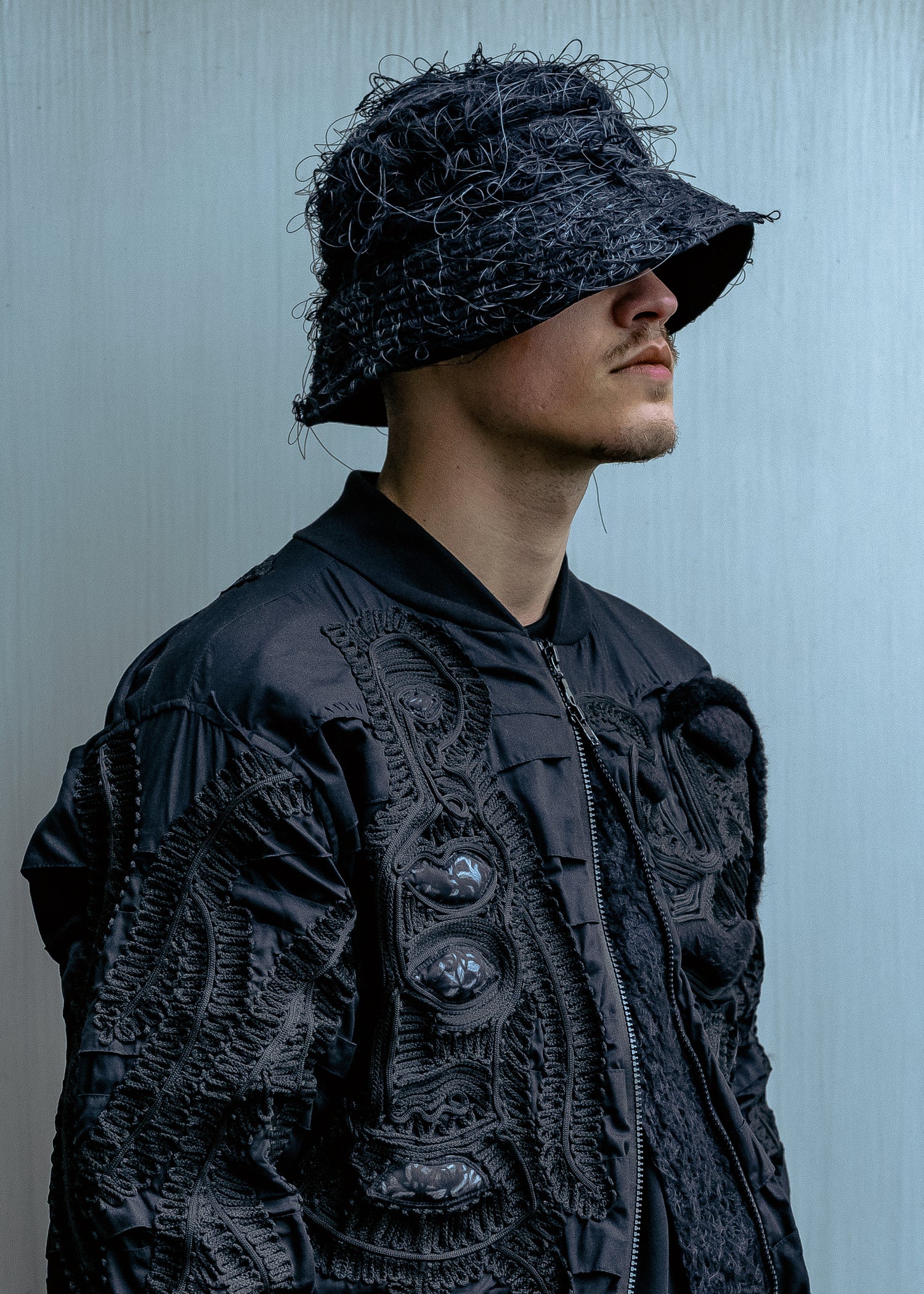
Dennis Chuene is a Berlin based fashion designer whose work explores
the intersection of identity, healing and memory through a deeply
personal design language he calls String Theory. Rooted in the cultural
and symbolic practice of body modification and scarification, Chuene’s
method mirrors how the skin responds to trauma, how it repairs,
regenerates and transforms into a visible record of survival. Just as a
blade cuts the skin and the body forms raised scars that tell a story,
Chuene’s stitches pierce and reshape fabric, leaving behind an
expressive body of work.
String Theory is more than a technique. It is an emotional
language. It reflects a devotion to hand stitching, found throughout
most pieces, paired with a passion for textile design and fabric
manipulation. Chuene often creates his own textiles, from the ground up,
turning materials into vessels for meaning. In some works, he takes
this even further by creating fabric entirely from thread using only a
sewing machine, a process he calls the Spide Web. This approach allows
him to literally build cloth from nothing, echoing the way memories and
scars form out of invisible experience.
Chuene’s process is entirely intuitive. He does not sketch on paper
or follow a traditional pattern making path. Every piece is shaped from
memory, instinct and a physical connection to fabric. Ideas live in his
head until they are ready to be made real. This non-linear method allows
him to respond freely to changes in the making process, adapting as
emotions shift or as new ideas emerge. It removes the limits of
pre-planned structure and opens the door to transformation at any stage
of creation.
At the core of his practice is the desire to tell lived experiences
and to build connection through clothing. Every garment is a story. His
jackets carry a blank white patch of fabric sewn on the inside or
outside, left intentionally empty so the wearer can write down their own
thoughts, memories or emotional states. This act allows the designer
and wearer to share authorship. It turns fashion into a space of
reflection and personal connection.
Chuene documents life, emotion and identity
through fabric and thread. His work offers space for memory and marks
the wearer with meaning. It invites people to feel, to reflect and to
remember
